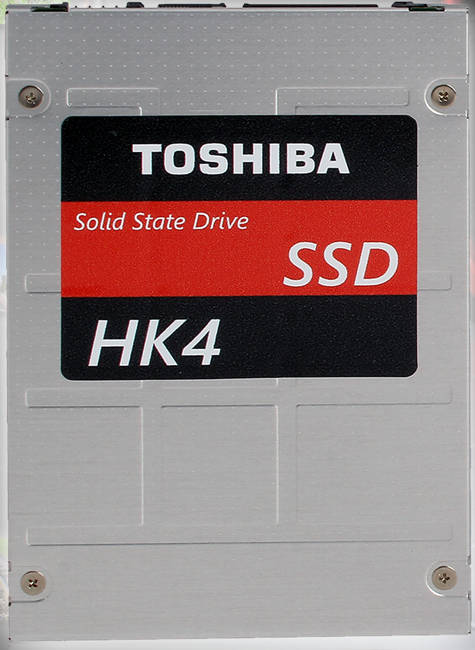This article is more than 1 year old
Toshiba cell-shrinks enterprise SSD: Sooner than we thought
Finely optimised for read-intensity or endurance
Toshiba has updated its HK3 series of read-intensive and long-life SSDs with doubled capacity through using smaller flash cells, while keeping performance more or less constant.
Previously the 6Gbit/s SATA HK3s were introduced in December 2013 and used 19nm MLC NAND with max capacities of 960GB for the read-intensive HK3R2 model and 800GB for the value endurance HK3E2 model.
They provided endurance of one full drive write per day (1 DWPD) for the read-intensive drive and 3 DWPDS for the endurance drive.
What Toshiba has done is to move to its latest 15nm NAND technology, as used in the 1TB SG5 desktop SDD announced a week ago. Then we said its 15nm cell lithography use “signals a wave of product refreshes as Toshiba's existing 19nm SSD products are changed over to use denser 15nm NAND during the next six to 12 months.”
We didn’t anticipate it would start so soon.
So the HK4 series uses 15nm MLC NAND, and come with read-optimised and endurance-optimised models as before, and doubled maximum capacity levels.
The HK4R is the read-intensive design said to be good for suitable for enterprise applications such as web servers, files servers, media streaming, video-on-demand, search engines and warm data storage. It has a 1.92TB maximum capacity.
Here’s a table comparing the HK3s and HK4s on their basic parameters;

Toshiba HK3 and HK4 SSDs compared. MiBs are 1,024KBs, not 1,000KBs. Click the table to get a larger version that's easier to read.
The HK4E is described as a value-endurance design, which can sustain 3 drive writes per day (DWPD) and stores up to 1.6TB; clearly over-provisioned for longer endurance compared to the HK4R.
The DWPD ratings are unchanged and the random and sequential read and write speeds are pretty similar to the outgoing drives.

Both drives have a 2 million hour MTBF rating. The HK4E has optional Trusted Computing Group (TCG) encryption support and Toshiba’s own QSBC (Quadruple Swing-By Code) error check and correction technology which helps its endurance.
These HK4 drives have a 5-year warranty and are available now, although the self-encrypting drive feature becomes available in April. ®
